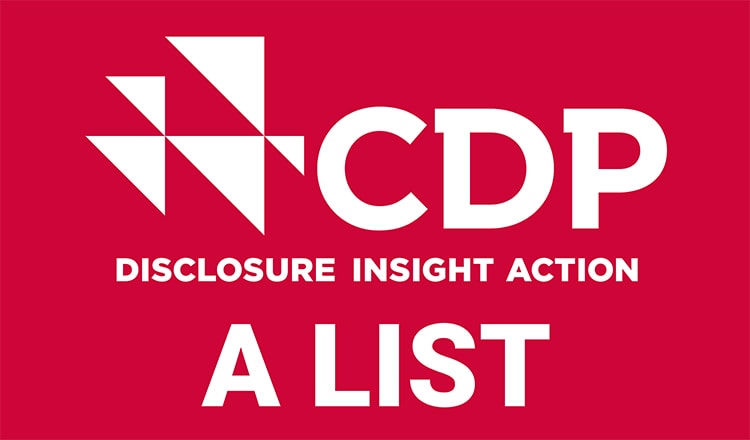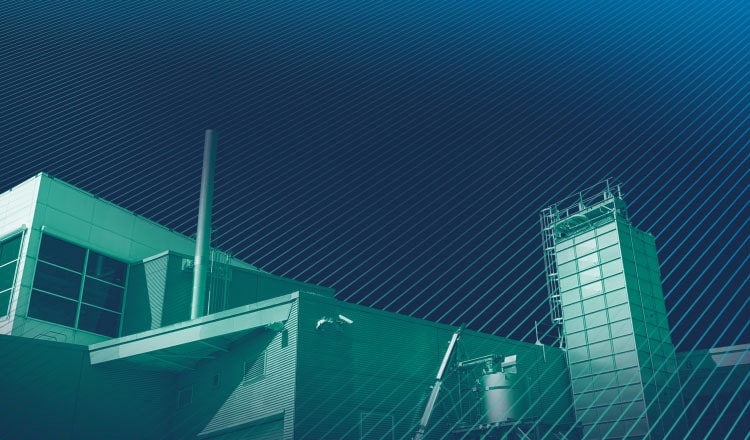Philip Morris International (PMI) has released its Low-Carbon Transition Plan (LCTP), showcasing the company’s ambitious new sustainability targets and setting the scene for how it will operate in future. Recognizing the urgent action required to tackle the climate change crisis, the LCTP brings forward PMI’s aim to achieve carbon neutrality in its direct operations (Scopes 1+2) by five years to 2025.
It also includes the company’s new target of achieving net-zero emissions across its entire value chain (Scopes 1+2+3) by 2040—10 years earlier than its previous 2050 goal.
Furthermore, the plan introduces an ambition for PMI’s critical suppliers to adopt Science Based Targets (SBTs) in line with the SBTs that PMI has already committed to—aligned with the 1.5°C pathway central to meeting the goals of the Paris Agreement.
Our aims:
Carbon neutrality
Achievement of carbon neutrality of PMI’s
direct operations (scope 1+2) by 2025
Net-zero emissions
Achievement of net-zero emissions of PMI’s
value chain (scope 1+2+3) by 2040
Engaging suppliers
PMI's critical suppliers to adopt science-based targets (SBTs) in line with PMI's own, aligned with the 1.5°C pathway necessary to meet the goals of the Paris Agreement
This new target highlights the importance of supplier engagement—an essential component of PMI achieving its CO2 reduction targets for Scope 3, which will allow the company to maintain its leadership role in climate actions.
The LCTP links these considerable ambitions to the company’s overarching purpose of achieving its vision of a smoke-free future—one in which cigarettes no longer exist—while seeking a net positive impact on society.
“By presenting our low-carbon transformation strategy, we hope to encourage change and foster engagement with investors and other stakeholders who will be able to evaluate whether our company is appropriately adapting its business model for success in a net-zero carbon economy,” said Jennifer Motles, Chief Sustainability Officer.
She adds: “The LCTP showcases how our targets are underpinned by detailed operational measures and a solid business strategy that are vital to translate ambition into action, achievement, impact, and most important, the only way to safeguard the sustainability of both our business and humanity.”

The LCTP showcases how our targets are underpinned by detailed operational measures and a solid business strategy that are vital to translate ambition into action, achievement, impact, and most important, the only way to safeguard the sustainability of both our business and humanity.
Three priority steps to delivering climate ambitions
PMI has adopted a three-step approach in its efforts to achieve the company’s emissions targets:
- Reducing consumption and optimizing efficiency to cut greenhouse gas (GHG) emissions.
- Minimizing the use of fossil fuels and promoting the switch to renewable energy.
- Compensating unavoidable emissions by prioritizing insetting projects (nature-based solutions) and purchasing high-quality carbon credits.
The company takes seriously its role to safeguard the future of our planet and our people, determined to deliver value now and in the long-term.
“Strong action must be taken to reduce the risks of climate change and stop the destruction of nature,” said Massimo Andolina, Senior Vice President, Operations.
He continues: “We believe that PMI must play its part in protecting vulnerable ecosystems and communities around the world by reducing our environmental impact across our value chain, and by defining and executing strategies and initiatives to achieve our long-term targets.
“Our business and sustainability strategies are advancing hand-in-hand with increasing momentum, and we are investing in innovative programs and taking a multidisciplinary approach to reducing the environmental impact of our products, operations, and value chain.”

We believe that PMI must play its part in protecting vulnerable ecosystems and communities around the world by reducing our environmental impact across our value chain, and by defining and executing strategies and initiatives to achieve our long-term targets.
Investing in natural solutions
PMI recognizes that, with the use of contemporary technologies, some emissions are still unavoidable.
As a result, its approach to carbon pricing includes the introduction of two complementary internal carbon costs: a shadow price of USD 65 per ton of CO2e and a carbon levy of USD 8 per ton of CO2e.
The shadow price helps to prioritize business cases for investment in activities aimed at structurally reducing carbon emissions; the carbon levy helps size the investments required today to decrease greenhouse gas emissions through offsetting and insetting initiatives.
PMI has created the Portfolio of Climate Investments (PCI) to guide these initiatives, providing transparency in the company’s activities to advance its decarbonization efforts.
The PCI’s Advisory Committee is responsible for managing and allocating budget to climate investment solutions along three main lines of intervention:
- Purchasing high-quality carbon credits to support short-term neutrality targets.
- Investing in insetting projects within PMI’s value chain to support long-term net-zero ambitions.
- Implementing innovative technologies that can help permanently remove carbon from the atmosphere.
Galvanizing PMI’s business and communities
Climate change not only impacts the environment, but also people’s livelihoods. That’s why PMI is also working to adapt to the impact of climate change and increase the resilience of its business and the communities where it operates.
The company understands that sustainability challenges do not exist in a vacuum; they are often linked and that must be considered to craft appropriate solutions.
Paving the way to carbon neutrality
PMI is already gaining global recognition for its progress in reducing its carbon footprint, as included in PMI’s 2020 Integrated Report.
PMI was included in the Dow Jones Sustainability Index (DJSI) North America for the first time in 2020. It achieved the highest score of 100 in the climate strategy, environmental reporting, and environmental policy and management systems categories.
In 2020, PMI was one of just 10 companies worldwide to receive the prestigious “Triple A” score for Environmental Sustainability leadership by CDP, maintaining its position on CDP’s A List for Climate Change for the seventh consecutive year. CDP also placed PMI on its Supplier Engagement leaderboard for the fourth year in a row.
Despite this clear evidence of progress, the company recognizes the imperative need to retain a sharp focus on its targets to achieve the future it’s envisioning.
That’s why PMI has published its LCTP—a firm public commitment to follow the pathway it has paved toward carbon neutrality and a better world for all.






